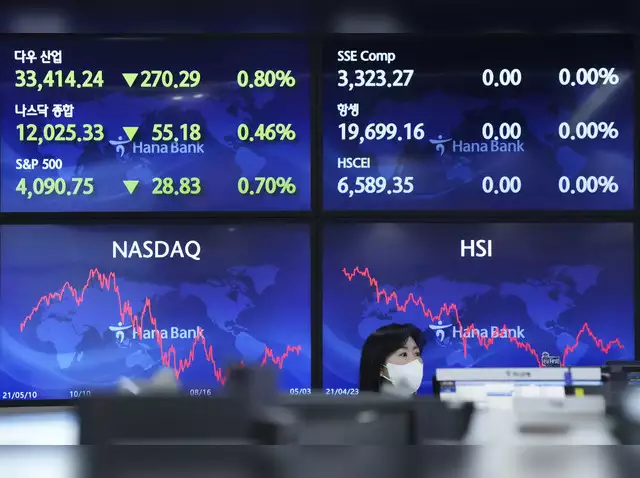In recent years, Evergrande Group has been making headlines for all the wrong reasons. Once hailed as a property giant in China, the company is now teetering on the brink of collapse, sending shockwaves through the global financial markets.
With its stock prices plummeting and mounting debt, Evergrande’s woes have deepened, raising concerns about a potential liquidation and the broader implications for China’s economy.
In this blog post, we’ll delve into the latest developments surrounding Evergrande and explore the far-reaching consequences of its struggles.
The Great Fall of Evergrande
Evergrande’s troubles have been relentless, with its stock experiencing a jaw-dropping 99.9% loss in value since its peak in October 2017. The most recent blow came as its shares closed down 19%, trading at just 32 Hong Kong cents (4 US cents).
The company’s market capitalization now stands at a meager 4.2 billion Hong Kong dollars, a far cry from its heyday.
The Current Crisis
Evergrande‘s woes took a turn for the worse when it warned of potential issues with its offshore debt restructuring plan. A regulatory probe into its main subsidiary in mainland China cast a shadow over its restructuring efforts.
This setback followed closely on the heels of news that Chinese authorities had launched a criminal investigation into Evergrande, marking a significant escalation in the company’s troubles.
Investor Concerns
Investors are understandably anxious about the escalating risks associated with Evergrande’s potential liquidation. Jun Rong Yeap, a market analyst at IG Group, succinctly captured the prevailing sentiment, stating that there are “increasing risks of a potential liquidation of Evergrande.”
The gravity of this situation cannot be overstated, given that Evergrande was once China’s second-largest real estate company.
Economic Ramifications
Evergrande’s fall from grace has had far-reaching consequences for China’s economy. Its default in 2021 triggered a crisis in the property sector that continues to hobble the broader economy.
The company has been striving to implement a government-supervised debt restructuring plan, but the road to recovery has been fraught with challenges.
Evergrande’s outstanding debts stood at a staggering $328 billion at the end of June, and the company recently filed for bankruptcy protection in the United States as part of the restructuring process.
The Big Question
The big question on everyone’s mind is whether recent measures by the Chinese government to stimulate housing demand will be effective in stabilizing the property market and, by extension, the broader economy.
Frederic Neumann, chief Asia economist for HSBC, highlighted the uncertainty, stating that “the [property] sector is so large that without a strong rebound, which appears unlikely for now, overall economic growth will likely be substantially lower than in recent decades.”
Evergrande Group’s tumultuous journey serves as a cautionary tale of the perils of excessive debt and unchecked expansion.
As investors anxiously await developments, the fate of Evergrande hangs in the balance, with significant implications for China’s economy and the global financial landscape.
The lessons learned from this saga underscore the importance of prudent financial management and the need for effective regulatory oversight in the world of real estate and property development.

